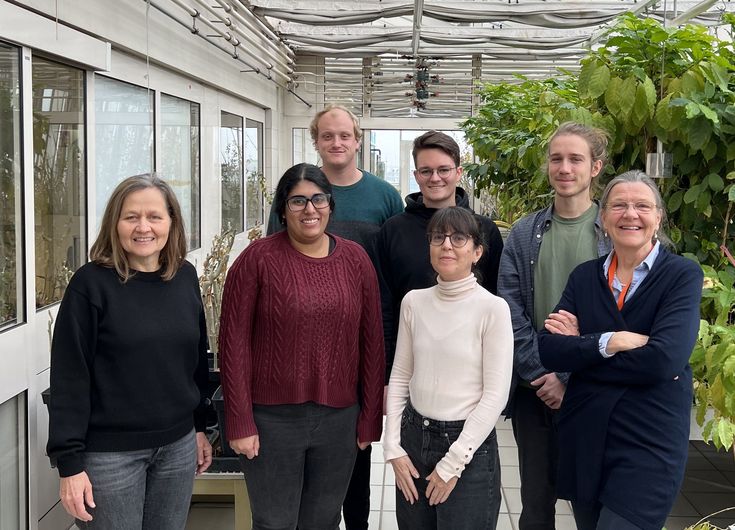Research Group Laimer
The Plant Biotechnology Unit at the Department of Biotechnology is engaged in biodiversity conservation by in vitro maintenance of genetic resources of local fruit species, the improvement of the phytosanitary state and the development of new breeding tools allowing the direct integration of desired traits, especially resistance to pathogens, into woody crop species.
Over 100 cultivars of stone and pome fruit trees are established and cultivated in vitro, freed from viruses by in-vitro-thermotherapy and meristem preparation and finally conserved as virusfree motherplants in an insect-proof screenhouse and as an in vitro genebank. Detection methods for fruit tree viruses and phytoplasmas are adapted to the needs of in-vitro material allowing an efficient early screening. Methods for genetic transformation and somatic hybridization are elaborated. Target plants currently are fruit trees and grapevine, with the aim to induce in stone fruits resistance to Sharka disease, caused by Plum Pox Virus, and in grapevines resistance to grapevine fanleaf disease and some woody disorders of viral origin. Furthermore attempts are made to achieve resistance against fungal diseases in grapevine and apple. Special care is devoted to biosafety aspects with regard to the release of transgenic plants into the field. Developmental processes (root induction, organogenesis, embryogenesis) are being studied by histological, physiological and molecular approaches. The identification and characterization of proteins and genes of the major apple allergens, and their promoters in different apple cultivars were compared at an EU level. The potential use of the Mal d 1 promoter as a pathogen-inducible regulatory sequence is currently being studied. The elaboration of micropropagation protocols for newly domesticated species, e.g. Lapsi (Choerospondias axillaris) and Jatropha curcas envisages two main goals: the rapid multiplication of selected genotypes and the genetic improvement of this particularly interesting tropical species yielding oil. Finally the fermentation of plant cells for the rapid multiplication of chosen genotypes and for the production of secondary metabolites are being addressed.

